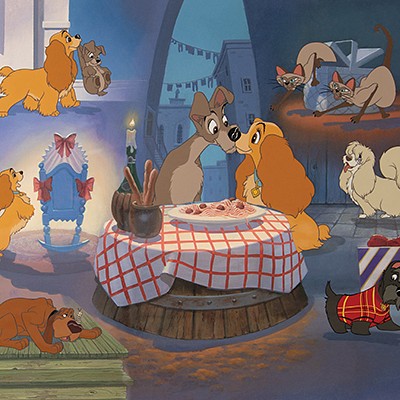Joseph Stalin: Original Time Magazine Cover Painting by Ernest Hamlin Baker
Two ways to bid:
- Leave a max absentee bid and the platform will bid on your behalf up to your maximum bid during the live auction.
- Bid live during the auction and your bids will be submitted real-time to the auctioneer.
Bid Increments
| Price | Bid Increment |
|---|---|
| $0 | $5 |
| $50 | $10 |
| $200 | $25 |
| $500 | $50 |
About Auction
Mar 13, 2024
RR Auction's March 2024 Fine Autographs and Artifacts auction features 650+ rare and remarkable items. The sale is highlighted by a robust selection of original animation artwork, including Eyvind Earle's remarkable landscape panoramas, Mary Blair's whimsical concept paintings, and production cels from Walt Disney classics like Snow White, Pinocchio, Lady and the Tramp, Peter Pan, and Cinderella. RR Auction support@rrauction.com
- Lot Description
Original painting of Joseph Stalin used on the cover of the February 5, 1945 issue of Time Magazine, accomplished in gouache on 10 x 11 artist's board by Ernest Hamlin Baker. The portrait depicts the Soviet leader in a close-up pose with a red shooting star in the background, and is signed along the bottom in white by the artist. Handsomely matted and framed to an overall size of 18.5 x 20.5. In very fine condition.
This issue of Time preceded the Yalta Conference and featured a lengthy piece on Russia, its importance to the Allied war effort, and Stalin himself—with a lengthy, interesting passage on the man's face, so capably rendered here by Baker. Headed 'The Face of History,' the article reads, in part:
'He was a little man (5 ft. 5 in.), two inches taller than Napoleon. But most Americans discovered this fact (to their surprise) only after the Teheran conference. For some 20 years before that, Americans had known Stalin chiefly from a few carefully posed photographs which made him look tall, and from Soviet statues and paintings which were invariably heroic. To the western world Stalin was chiefly a face and a focus for disturbing rumors.
It was the kind of face that was more disquieting when it smiled than when it was sober. Over the years it had slowly changed. In Stalin's youth his face had been delicately handsome, but revolution, war, power and, above all, will had abraded it into somber strength. The hair, which had been purplish black like most Georgians', and grew far forward on the low forehead, had turned grey. The eyes, which had once peered out from velvety depths of unfathomable distrust ('Lenin trusts Stalin,' old Bolsheviks used to say, 'and Stalin trusts nobody'), had acquired an expression almost of authoritative benevolence.
Americans would have done well to ponder upon that face, for it was something new under the sun. The stubborn fact about the face of Stalin was that it was less the face of a man than of a historic force. It was the face of the first proletarian Bolshevik to become unquestioned lawgiver and dispenser of dogma to a party whose 4,600,000 members were bound to absolute obedience by an iron-clad discipline. It was also the face of the absolute ruler of some 180,000,000 people of 170 nationalities, living in one-sixth of the earth's surface, in a socialist empire spilling across Europe and Asia from Poland to the Pacific Ocean, and threatening to spill farther.' - Shipping Info
-
Bidder is liable for shipping and handling and providing accurate information as to shipping or delivery locations and arranging for such. RR Auction is unable to combine purchases from other auctions or affiliates into one package for shipping purposes. Lots won will be shipped in a commercially reasonable time after payment in good funds for the merchandise and the shipping fees are received or credit extended, except when third-party shipment occurs. Bidder agrees that service and handling charges related to shipping items which are not pre-paid may be charged to a credit card on file with RR Auction. Successful international Bidders shall provide written shipping instructions, including specified Customs declarations, to RR Auction for any lots to be delivered outside of the United States. NOTE: Declaration value shall be the item’(s) hammer price and RR Auction shall use the correct harmonized code for the lot. Domestic Bidders on lots designated for third-party shipment must designate the common carrier, accept risk of loss, and prepay shipping costs.
-
- Buyer's Premium



 EUR
EUR CAD
CAD AUD
AUD GBP
GBP MXN
MXN HKD
HKD CNY
CNY MYR
MYR SEK
SEK SGD
SGD CHF
CHF THB
THB




